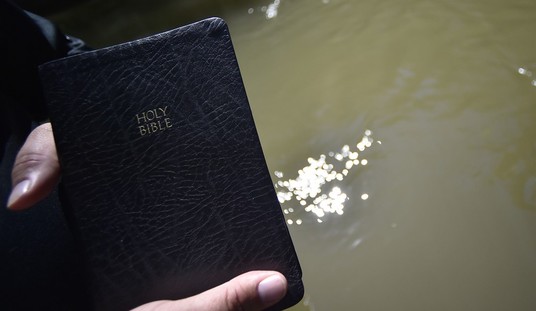Iran managed to hold its annual anti-Israel Quds Day rallies this year in relative peace, as the opposition stayed away from the streets. Thousands of hard-line supporters of the Iranian government flocked to the streets of the capital Tehran and elsewhere in the country to denounce Israel, and to demand that Jews leave the Middle East. The numbers were a far cry from the rallies in past years that attracted millions, a good indicator of the government’s waning popularity.
Even though opposition activists had quietly indicated that they would hold rallies against the government, no one showed up after the government filled the streets with thousands of security forces. Their decision to not show up was also affected by the government’s brazen attacks on the house of opposition leader Mehdi Karroubi for the past two days.
The main government rallies in Tehran were marked by supporters marching through the streets in different parts of the city, carrying anti-Israel and pro-Palestinian placards and chanting anti-Israel slogans. By far the largest crowd gathered in Tehran University, which was under tight security, where President Mahmoud Ahmadinejad gave another of his anti-Israel speeches. This time, he managed both to denounce Israel and to call the current round of peace talks between the Israelis and Palestinians in Washington “a failure from the start.” He also accused the West of blatant pro-Zionist policies.
Quds Day is held on the last Friday of the Islamic holy month of Ramadan in Iran. Initiated by Iran’s revolutionary leader Imam Khomeini, the protest was meant to show solidarity with Palestinians. It has now largely turned into a platform for Iran’s theofascist regime to promote its own version of anti-Semitism, anti-Americanism, and anti-everything the mullahs in power seek to denounce — including their domestic opposition.
The opposition spent the day tending to the attack on their leader, and according to some activists, enjoyed the degree to which the government has become frightened of their activities. One activist opined:
The government had to put thousands of security forces on Tehran’s streets under scorching heat for most of the day. Logistically speaking, this is a great blow, since not only did they spend a lot of money to contain a ghost, but also fatigued their thugs.
Another lamented that if the government hadn’t put too many security forces on the ground, they might have held a rally.
What the day proved, however, was that the government is indeed troubled by the opposition, and is ready to go to any lengths to control their activities. This is a hard blow to a regime that has recently boasted that it has crushed the opposition, and that the Green Movement — a coalition of anti-government opposition groups — is not a threat. The streets of Tehran today were a witness to how much of a threat they expected.
Two of the city’s main squares, Enghelab and Hafte Tir, were covered by security forces. Roads leading to many other squares were also completely sealed by baton-wielding Basijis — a militant organization under the direct control of the supreme leader, Ali Khamenei. Basijis also patrolled the metro stations in the city and routinely questioned people there. Elsewhere, security forces set up checkpoints and searched ordinary Tehranis. Eyewitnesses have so far confirmed the arrests of at least a dozen people — indicating the real number to be much higher.
The situation in Tehran was much better compared to Shiraz, however.
Clashes broke out in this southern city when security forces attacked Ghoba Mosque, the main seat of Ayatollah Dastegheyb, a respected cleric and supporter of the opposition movement. Hundreds of Basijis entered the mosque and beat up the cleric’s students who’d gathered there. Mosque officials were told not to hold any gatherings, and the establishment was already surrounded by security forces before the attack.
Back in the capital, Basijis continued their attacks on Mehdi Karroubi’s house for the second day. They shot paintball guns, threw rocks, and shot at the house. They also beat up several people outside the house who were either passing by or attempting to enter the house. Opposition leader Mir Hossein Mousavi called Karroubi to express his support, as did Grand Ayatollah Bayat Zanjani, another renegade cleric who supports the opposition. Sayed Yasser Khomeini — the grandson of the leader of Iran’s revolution, Imam Khomeini — visited Karroubi and decried the government’s actions.
Later in the day, videos from inside of Karroubi’s house were released, showing broken windows and bullet holes in walls.
As the day ended, most opposition supporters may have been disheartened, but one dissident summed up the situation with these words:
They held a small rally to make more enemies. We didn’t show up, but we’re making more friends every day.









Join the conversation as a VIP Member